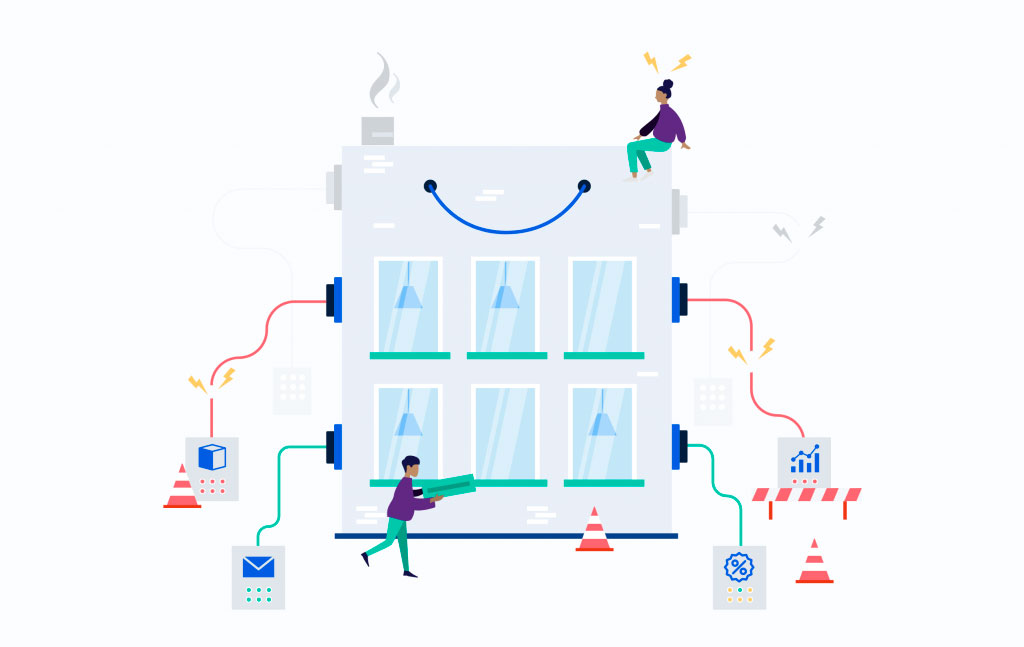By Miva | August 9, 2021

See why top ecommerce brands use Miva’s no-code platform to run
multiple stores, manage massive catalogs, and grow their revenue.
In addition to an ecommerce platform, many online sellers look at extensions like ecommerce apps, plugins, add-ons and modules as part of their ecommerce investment.
An alternative to custom coding, plugins can be a fast and economical way to add more functionality to your website. These extensions particularly appeal to new sellers and small businesses who want to extend the capabilities of their shopping cart software and make up for any missing features.
Ecommerce apps and plugins have their benefits, but online sellers need to be cautious about having too many on their site. While plugins are often used to compensate for a lack of native functionality, they do not replace a full-featured ecommerce platform. The best fit for your business (and the solution it deserves) should be evaluated beyond a well-stocked ecommerce app store and suite of plugins. In this article, we discuss the dangers of relying solely on plugins and what you can do to avoid it.
Unlike native features, plugins and apps are generally designed by third-party vendors as an extension to your ecommerce platform. That means that if any issues arise with your plugins, you have to get in touch with the team that built the plugins to resolve them.
Plugins become a problem when you have too many installed on your site, and they become difficult to manage. Depending on how they’re developed, plugins and apps can sometimes be incompatible with your platform when you’re making an update. You’ll need to work with multiple teams to fix the plugins, which can be costly, labor-intensive and time-consuming. Excess plugins can also open your site up to security breaches.
If your plugins are not properly managed and form a big portion of your software’s capabilities, they can compromise your website’s efficiency and security, cutting into your revenue and damaging your online reputation.
Constantly adding ecommerce apps and plugins to your website every time you need new features can cause another issue: sluggish page speeds. In the current ecommerce environment, fast page speeds are key to retaining website visitors.
The more plugins and apps you have installed over time, the more resources will be required from your site. If left out of hand, this could lead to slow load speeds, which hurt your website’s sales, customer retention, and overall competitiveness.
A slow website is often the result of over-relying on plugins to fill in the gaps of your ecommerce platform. Plugins should be used to supplement and add additional capabilities on top of your platform rather than to rectify its shortcomings.
When added strategically on top of an already capable ecommerce platform, plugin modules provide many benefits for your business. They can help you increase conversions, enhance the customer experience, manage backend processes, and increase the performance of your business—both on the front-end and the back-end.
Here are a few things to consider when choosing a plugin or extension from the app store:
In addition, you’ll want to consider the size of your business and the complexity of your website. A smaller website is likely to have less bandwidth for plugins and apps. A bigger website can handle more plugins for additional capabilities and complicated use cases. A good rule of thumb is to install plugins for features that you truly need on top of the native features of your platform.
How do you know if your site is relying on too many extensions? Use page load tools to check your site speed, and consider metrics like bounce rate and conversion rate to determine whether your website’s performance is underperforming.
If you don’t want to constantly download plugins over time to extend your ecommerce solution, there is an alternative. While exploring solutions, you might have come across “shopping cart software” and “ecommerce platform” options. A simple shopping cart solution provides basic functionality, but will require you to keep stacking on apps and plugins over time to scale your business...which can eventually lead to an “app soup” of bolted-on solutions.
For your business to sell, market, and grow uninhibited, you need to understand your specific requirements and ensure they are prioritized in the built-in features of an ecommerce solution. A full-fledged ecommerce platform is the answer to this threat of “app soup” and all the issues that come with it. It has extensive native functionality but also offers a tight network of integrations that give you more functionality, efficiency, and agility without bogging down your site. With a true ecommerce platform, you use integrations to enhance your site rather than to make up for its missing features.
When choosing an ecommerce solution, you’ll want to select a provider that offers exceptional total cost of ownership—one that balances of features and long-term value. Download our guide on whether shopping cart software or an ecommerce platform is the better choice for your business.
The blog was originally published on June 11, 2018 and updated on August 9, 2021.
Back to topNo worries, download the PDF version now and enjoy your reading later...
Download PDF Miva
Miva
Miva offers a flexible and adaptable ecommerce platform that evolves with businesses and allows them to drive sales, maximize average order value, cut overhead costs, and increase revenue. Miva has been helping businesses realize their ecommerce potential for over 20 years and empowering retail, wholesale, and direct-to-consumer sellers across all industries to transform their business through ecommerce.
Visit Website